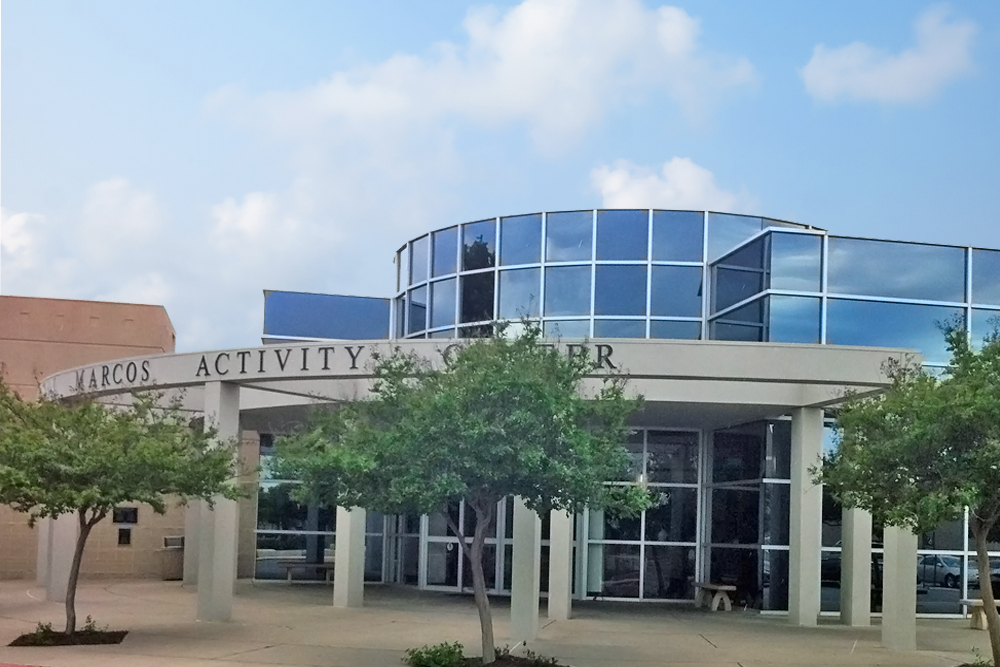Round table sessions aim to foster transparency between students, officials
By Alexa Tavarez, News Reporter
Students expressed concerns about retention and athletic event promotion at the Student Government Round Table discussions held at the LBJSC ballroom on Monday.
University officials from Student Affairs, Parking Services, Chartwells, the Police Department, and Athletics sat with students in 10-minute sessions in an effort to promote transparency.
Megan Trexler, a business marketing and public relations major, asked President Denise Trauth and Provost Eugene Bourgeois what officials are doing to increase student retention.
Trauth emphasized dealing with students as individuals is essential in university programs focused on retention.
“Despite the fact that (Texas State) is rather large, we have, by all accounts, a very personalized culture,” Trauth said. “And most of what we do in retention comes back to that.”
Furthermore, retention begins in the summer with programs such as Cat Camp and getting the “right balance of courses” for a student’s first semester, Trauth said.
“During that first semester we have an early alert system that if faculty feels like a student is getting into trouble early on, we (can) reach out and make it a personalized reach,” Trauth said.
The university has launched a new wave of supplemental instruction for students taking classes in fields such as chemistry and biochemistry, Bourgeois said.
“It’s looking at (supplemental instruction) to see how peer mentoring can maintain student retention,” Bourgeois said.
Daulton O’Neill, public administration junior, discussed with athletics officials whether the idea of a “beer garden” would entice students 21 and over to attend more games.
Officials at the University of North Texas are trying the idea of a “beer garden” on one side of the stadium, said Athletic Director Larry Teis.
“We wrote down all the pros and cons and tried to argue (having a beer garden) and pass a legislation, but the cons outweighed the pros tremendously,” O’Neill said.
The university probably wouldn’t make any money from the garden because the cost to “beef up” security would decrease the profit margin, O’Neill said.
“It’s a catch-22,” Teis said. “Everybody talks about ‘does it help, does it not help,’ but I don’t know. Maybe down the road the university’s thoughts on it (will change).”
The worst thing for a university is an empty stadium, Teis said. However, attendance at home football games has increased this year, he said.
Photo by: Haron Saenz | Photographer
· Alexa Tavarez is a news reporter for the University Star where this story was originally publish. It is reprinted here through a news partnership between the University Star and the San Marcos Corridor.






